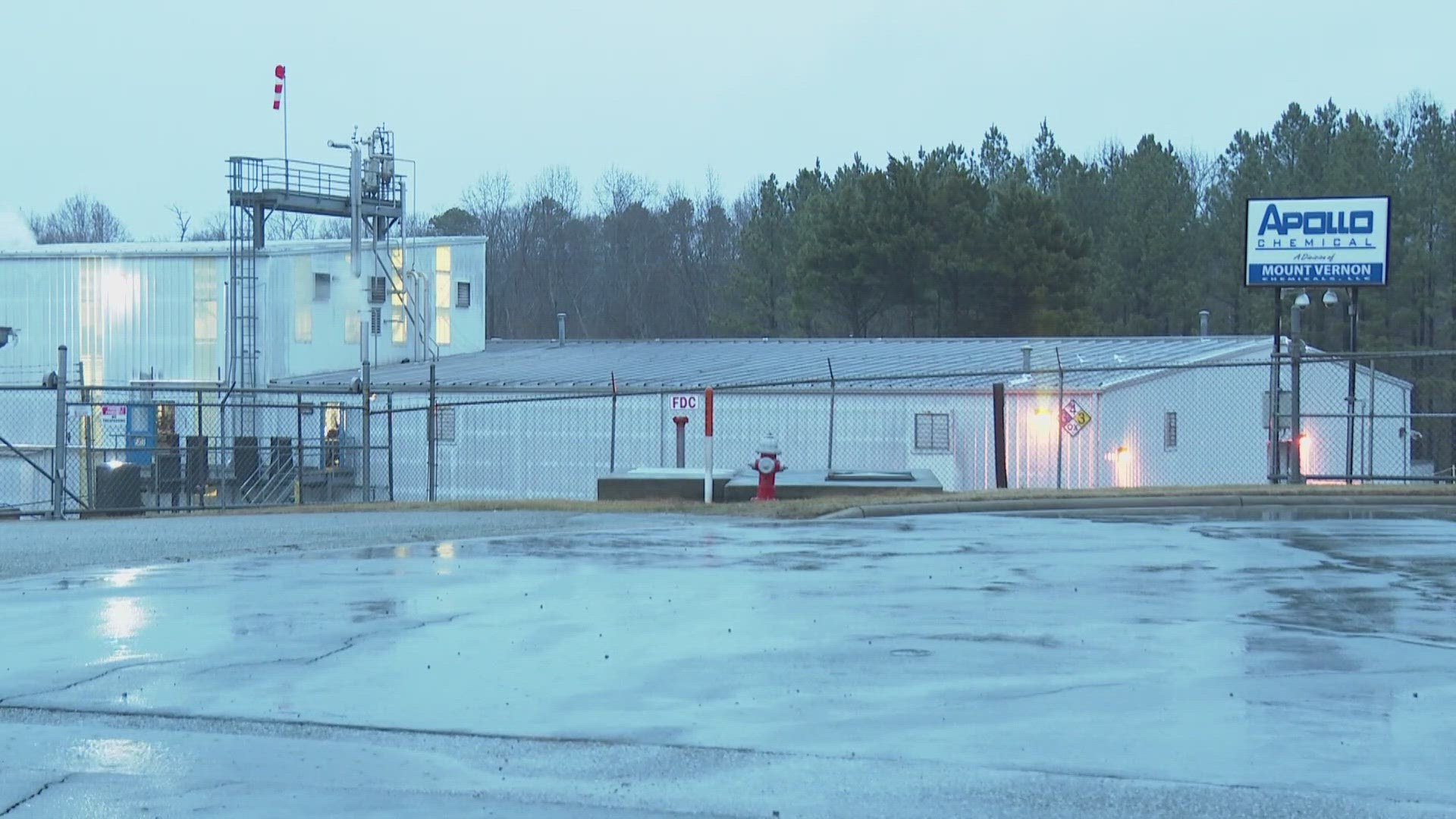BURLINGTON, N.C. — The possible carcinogen, 1,4-Dioxane was recently dumped into the Haw River.
The City of Burlington said the potentially cancer-causing chemical came from Apollo Chemical in Burlington.
This is an issue for the Town of Pittsboro as they get their water directly from the Haw River.
Pittsboro's Public Information Officer Colby Sawyer said this is something they've dealt with before.
"We're not new to this. We've had multiple of these events over the years, and so we're pretty well-trained and prepared on how to handle these things," Sawyer said.
Although the chemicals are said to come from a chemical company in Burlington, the City of Burlington's water supply is fine, but with Pittsboro being downstream from Burlington, any possible traces of 1,4-Dioxane will eventually end up in Pittsboro and beyond.
"Our water sources are not connected to the Haw River. The South Burlington Wastewater Treatment Plant discharges into the Great Alamance Creek, just upstream of where it discharges to the Haw River. Anybody downstream of that potentially could be affected," City of Burlington's Water Resources Director Bob Patterson said.
According to the CDC, 1,4-Dioxane is a clear liquid that easily dissolves in water. It's used primarily as a solvent in the manufacturing of chemicals. The CDC says the chemical is possibly carcinogenic to humans, meaning it's capable of causing cancer.
Pittsboro has yet to get back results from the lab on whether or not 1,4-Dioxane is in their water. But out of caution, the town is using the bare minimum amount of water needed to keep their systems functioning and even giving out free water until they get the all-clear. The town, as well as the folks with the Haw River Assembly, like Haw Riverkeeper Emily Sutton, are encouraging people to push legislators for more regulation of 1,4-Dioxane in our water systems, so that the dumping of the chemical into waterways can be monitored closer, and those responsible can face more consequences.
"Right now, North Carolina is in this very contentious debate around whether or not our state can enact narrative standards, numeric standards, for 1,4-Dioxane on any of these discharge permits. 1,4-Dioxane isn’t an issue that we’re seeing federally as much as PFAS, so it hasn’t risen to the level of concern that we’re seeing," Sutton said.

